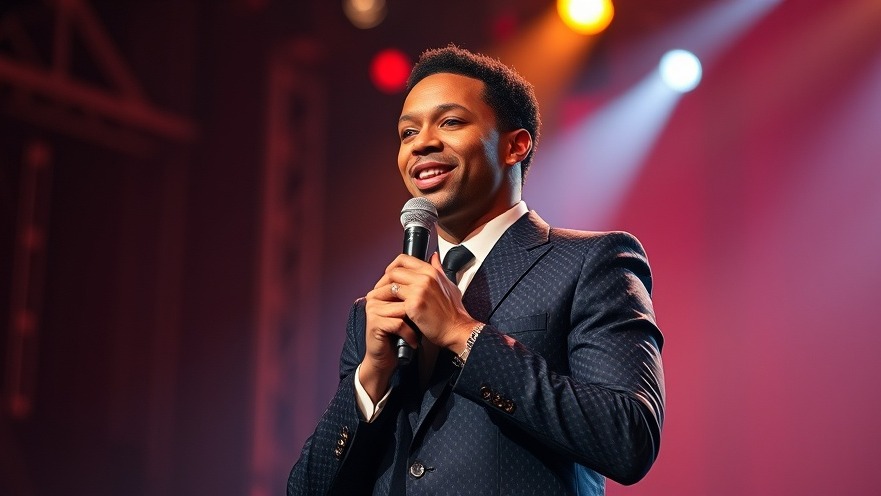
Trevor Noah's Bold Commentary: Finding Humor in Tragedy
In a recent performance at the Comedy Cellar, comedian Trevor Noah stirred considerable discussion by finding humor in a tragically ironic situation: the assassination of conservative activist Charlie Kirk while he was defending gun rights. Noah's remarks ignited debates over free speech and the role of comedy in addressing real-world events, especially in an era marked by deep political divides.
The Irony of Kirk's Demise
Noah's quip that it was "funny" Kirk was shot during a discussion advocating for gun rights reflects a remarkable sense of disrespect, reminiscent of historical anecdotes likened to absurd comedy. He illustrated this point by comparing Kirk’s fate to that of a hypothetical Titanic captain passionately arguing against the dangers of icebergs just before a collision. Noah emphasized how the incongruity of Kirk's defense of guns ended in a violent act highlighted the surreal nature of the moment.
A Line Between Humor and Insensitivity
The backlash against Noah's comments raises important questions about the boundaries of comedy. While Kirk's death has sparked outrage and grief, so-called "comedians" like Noah have long argued that humor often serves as a coping mechanism, helping society confront uncomfortable truths. As Noah articulated, the prohibition against laughing at tragic incidents can lead to a suppression of honest discourse, a concept he illustrated when he deadpanned, "You keep saying there’s nothing funny about it... you’re going to make me find the funny!"
Political Context: Free Speech and Political Violence
The assassination of Charlie Kirk has drawn attention to deeper societal issues, particularly regarding free speech and political violence in America. Kirk, the founder of Turning Point USA, was known for his conservative stances on gun control and other contentious issues. Following his assassination, conversations around the implications of free speech have polarized communities, with some expressing outrage over the act of violence, while others argue it feeds into a narrative silencing conservative voices. Noah’s comments serve as a reminder of the often fraught intersection of comedy and politics.
Public Reaction and the Role of Comedians
The public's reaction to Noah’s humor reflects the broader societal divide. Many applauded him for his fearless comedic approach, while others condemned him for insensitivity and dog-whistling further political violence. This dichotomy illustrates how humor can serve both as a unifying force and a source of division, especially when addressing politically charged topics. Responses on social media showcased a spectrum of opinions, with some users expressing nostalgia for Noah’s unique ability to critique societal norms while keeping his audience engaged.
The Future of Comedy Amid Political Division
Noah's comments highlight the essential role of comedians in challenging prevailing narratives. As tensions continue to rise politically, the challenge for comedians will be to navigate the fine line between offering hard-hitting observations on real-world crises while remaining mindful of the sensitivities involved. Part of the evolution of comedy is that it often thrives in challenging times, prompting audiences to confront uncomfortable realities through laughter.
Conclusion: The Need for Tactile Reflection
The incident surrounding Charlie Kirk's death and Trevor Noah's reactions serve as a microcosm of the larger American narrative—a land grappling with the coexistence of free speech and the potential dangers of dangerous political rhetoric. As society further contemplates these themes, it remains crucial to allow space for robust dialogue—both in the realms of political discourse and comedic expression. This conversation is necessary not merely for comedians but for all who value the importance of humor as a form of resistance against the darker aspects of our cultural landscape.
As we process the tragic consequences of incidents like Kirk’s assassination, it calls for reflection on how public figures wield their influence and how we, as a society, can ensure that comedy retains its place as a form of commentary in times of crisis.
 Add Element
Add Element  Add Row
Add Row 



Write A Comment